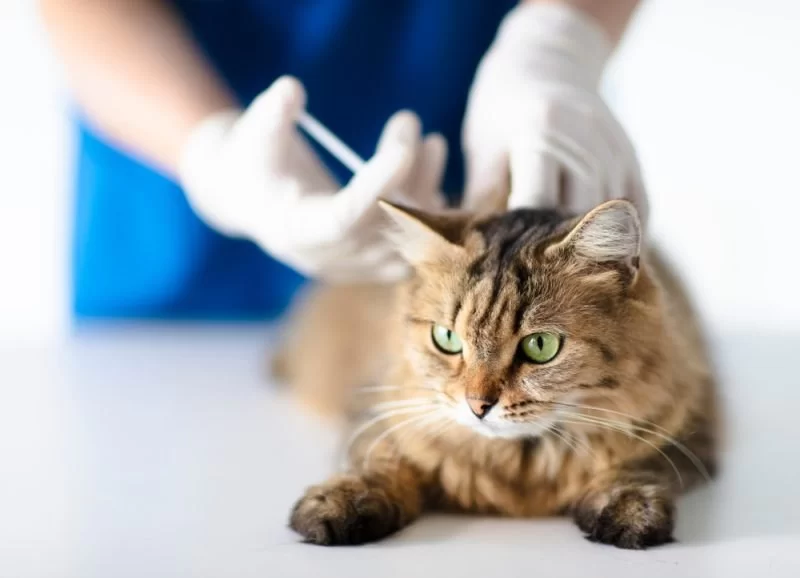- why-vaccinating-cats-matters-in-2025 - Why Vaccinating Cats Matters in 2025
- core-vaccines-vs-non-core-vaccines-explained - Core Vaccines vs. Non-Core Vaccines Explained
- updated-2025-cat-vaccine-booster-schedule - Updated 2025 Cat Vaccine Booster Schedule
- how-age-lifestyle-and-health-affect-vaccine-frequency - How Age, Lifestyle, and Health Affect Vaccine Frequency
- real-life-story-mittens-and-her-overdue-vaccines - Real-Life Story: Mittens and Her Overdue Vaccines
- what-to-expect-during-a-vaccine-appointment - What to Expect During a Vaccine Appointment
- why-annual-checkups-are-still-crucial - Why Annual Checkups Are Still Crucial
1. Why Vaccinating Cats Matters in 2025
Vaccinating your cat is not just about following tradition—it’s about safeguarding them from potentially life-threatening diseases. In 2025, feline vaccination recommendations continue to evolve based on new research, lifestyle factors, and improved veterinary guidelines. Ensuring your cat is protected helps prevent outbreaks of contagious illnesses like feline panleukopenia, rabies, and upper respiratory infections.
At Hidden Brook Veterinary, we emphasize the importance of vaccination as part of preventive care. It's one of the simplest ways to keep your feline healthy, especially as more households adopt both indoor and outdoor cat lifestyles.
2. Core Vaccines vs. Non-Core Vaccines Explained
Vaccines for cats are categorized into two groups: core and non-core.
Core vaccines are essential for all cats, regardless of lifestyle:
- FVRCP: Protects against Feline Viral Rhinotracheitis, Calicivirus, and Panleukopenia
- Rabies: Legally required in most U.S. states and essential for public health
Non-core vaccines are recommended based on your cat’s lifestyle and risk factors:
- FeLV (Feline Leukemia Virus): Recommended for outdoor cats or those living with FeLV-positive cats
- Bordetella: Suggested for cats in shelters or boarding facilities
A consultation with your vet can help determine which non-core vaccines are appropriate for your cat’s situation.
3. Updated 2025 Cat Vaccine Booster Schedule
Veterinary guidelines for 2025 suggest the following booster schedule:
Kittens (6–16 weeks):
- FVRCP: every 3–4 weeks until 16–20 weeks of age
- Rabies: single dose at 12–16 weeks, as required by local laws
- FeLV: two doses, 3–4 weeks apart (if needed)
Adult cats (1 year and older):
- FVRCP booster at 1 year, then every 3 years
- Rabies annually or every 3 years depending on the vaccine used
- FeLV annually for at-risk cats
It’s important to follow your vet’s recommended vaccination plan, especially as immune response can vary by age and health status.
4. How Age, Lifestyle, and Health Affect Vaccine Frequency
Not all cats are the same, and their vaccination schedules shouldn’t be either. A young, outdoor cat exposed to other animals needs different protection than a senior indoor-only cat.
Veterinarians now tailor vaccination plans using:
- Age: Senior cats may receive fewer vaccines due to weaker immune response
- Living conditions: Boarding, travel, or multi-pet households can increase disease exposure risk
- Health history: Immunocompromised or chronically ill cats may require adjusted schedules
At Hidden Brook Veterinary, we personalize every vaccine plan, ensuring maximum protection without over-vaccination.
5. Real-Life Story: Mittens and Her Overdue Vaccines
Mittens, a 7-year-old tabby, had never missed a booster until her family moved states and delayed care for nearly two years. When she developed a high fever and nasal discharge, her vet diagnosed her with feline calicivirus—a preventable disease covered by the FVRCP vaccine.
Her recovery took weeks and required supportive care. The vet explained that missing her regular FVRCP booster likely left her vulnerable. Mittens’ story underscores the real-world impact of staying up to date.
6. What to Expect During a Vaccine Appointment
A cat vaccine visit at your vet clinic usually includes:
- A full physical exam to assess your cat’s overall health
- Review of vaccination history and update on due boosters
- Discussion about your cat’s lifestyle and exposure risk
- Vaccine administration with post-vaccine care tips
Most cats tolerate vaccines well, though minor soreness or lethargy for 24–48 hours is normal. Severe reactions are rare but should be reported to your vet immediately.
7. Why Annual Checkups Are Still Crucial
Even if your cat doesn’t need a vaccine every year, annual wellness visits are essential. These visits catch early signs of illness, review vaccine coverage, and build a strong medical history for your pet.
In 2025, updated guidelines suggest that preventive care, including titers (antibody tests) for some vaccines, can guide whether a booster is needed. Your vet can explain what makes sense for your cat’s health journey.
Whether you have a feisty kitten or a relaxed senior cat, vaccinations remain one of the most vital ways to protect their health. Reach out to Hidden Brook Veterinary today to get a personalized booster plan based on the latest vet-approved insights.












